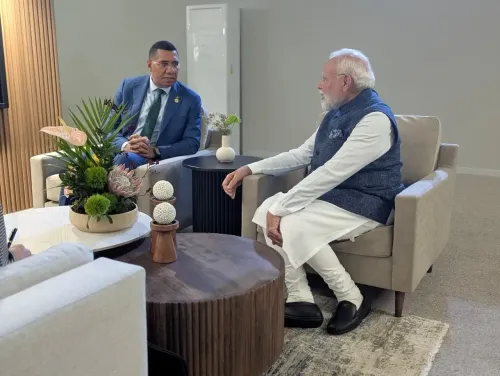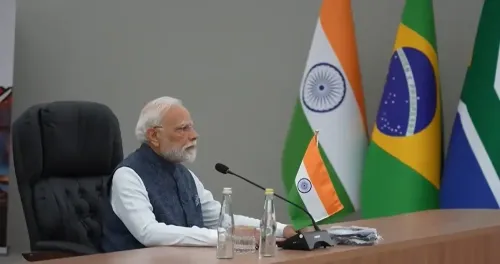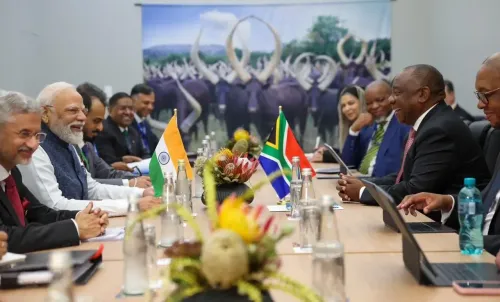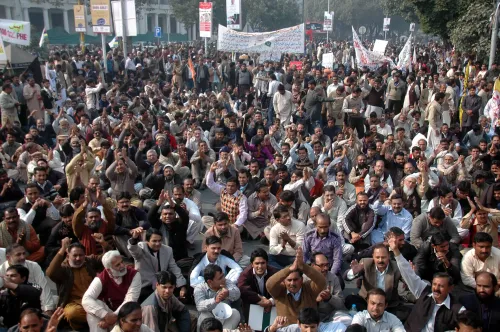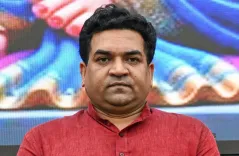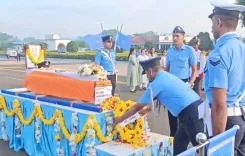Was Operation Sindoor Authorized by the UNSC Statement Against Pahalgam Terrorists?
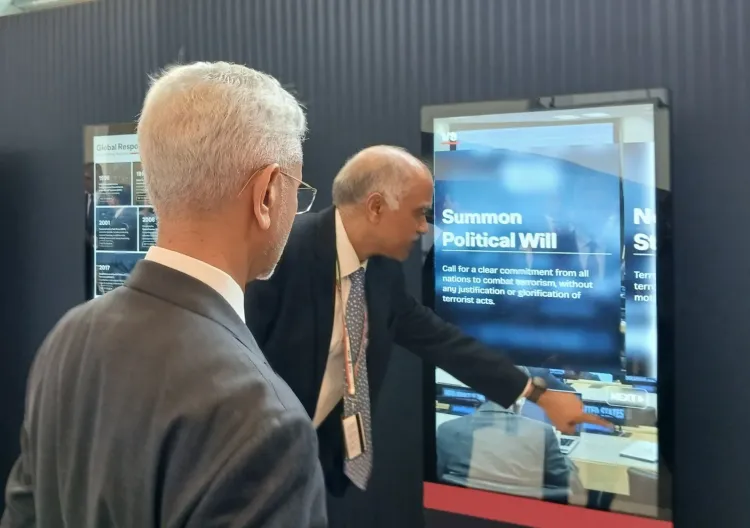
Synopsis
Key Takeaways
- Operation Sindoor was sanctioned to respond to the Pahalgam massacre.
- The UNSC emphasized the need for accountability for terrorist acts.
- The exhibition highlights four decades of terrorism.
- Jaishankar stressed the importance of confronting state-supported terrorism.
- Global cooperation is essential in combating terrorism.
United Nations, June 30 (NationPress) External Affairs Minister S. Jaishankar emphasized on Monday that Operation Sindoor was sanctioned in accordance with the Security Council statement calling for action against those responsible for the Pahalgam massacre. Jaishankar noted that the Council's statement from April 25 "demanded accountability for the perpetrators and their prosecution". "We have since witnessed progress in that direction," he stated.
Operation Sindoor targeted the terrorist hideouts and leaders based in Pakistan who orchestrated the attacks, prior to Islamabad escalating tensions.
"This response signifies a broader message of zero tolerance towards terrorism," he remarked.
Jaishankar made these comments during the launch of the exhibition, The Human Cost of Terrorism, at the UN.
The digital exhibition was unveiled just a day before Pakistan assumed the presidency of the Council for July, marking it as the first display seen by top diplomats entering the UN building.
It encapsulates four decades of terrorism, ranging from the 1985 downing of an Air India flight by terrorists based in Canada to the Pahalgam killings by The Resistance Front, linked to the Pakistan-based Lashkar-e-Taiba.
The exhibition highlights 29 incidents that provide a sweeping overview of global atrocities, including the 9/11 attacks in the US, the 2005 London bombings, the 2003 Baghdad bombings, the 2002 Bali attack, and the Crocus City Hall shooting in Moscow last year.
Although Jaishankar did not explicitly mention Operation Sindoor or Pakistan, his reference to the Council's statement clearly indicated his focus.
The statement articulated: "The members of the Security Council underscored the necessity to hold accountable those responsible for this abhorrent act of terrorism."
Additionally, the Council emphasized that those accountable for these murders should face justice and called upon all nations to actively cooperate with relevant authorities as per international law and pertinent Security Council resolutions.
Pakistan, a member of the Council, consented to the statement that was issued unanimously under pressure from other nations.
In explaining the rationale underlying the exhibition, Jaishankar asserted that terrorism contradicts the very principles of the UN. He noted that when terrorism is supported by a state against its neighbor, and when "the bigotry of extremism fuels numerous unlawful activities, it is crucial to confront it head-on."
"One effective method of doing so is to exhibit the devastation it has caused to global society," he added.
"Today's exhibition is not just a showcase of images, videos, and narratives; it represents our collective duty" to combat terrorism, he concluded.
India’s Permanent Representative P Harish remarked that the exhibition "serves as a testament to our shared humanity, celebrating the gallery of human courage where each moment, memory, artifact, and word narrates the experiences of ordinary individuals."

